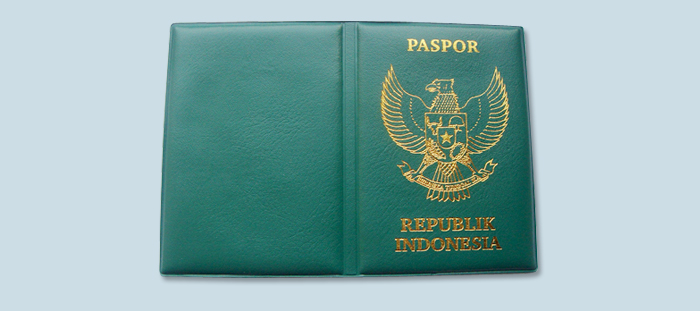Sometimes we need a shallow reason just to do to something noble. We know we are not worthy of the nobility, hence the shallow justification.
My fingers were tapping on my gadget, looking for any immigration office that still opened for online passport registration. I was about to go abroad to attend a literature festival. Good grief! All immigration offices in Jakarta were fully booked. No slot was available until 2020. I checked on the application schedule in other cities. Yes, there was a slot for the next day, but it was in Madiun or Kediri, in the East!
Five years ago, applying for passport online was very easy. It was like the miracle of the Reform era! My mind went back to the Soeharto period. The government offices were full of middlemen. You could recognize them by their thick faces formed by wide pores, maybe as a result of staying too long in a crowded office filled with smokes and no air conditioner. They moved from table to table, their hands carrying stacks of folders, persuading lazy officials to priorotize their clients. We could not do anything, hoping that our middleman was slicker than the rest.
Now, it is only fair if I am worried that the result of slow bureaucracy reformation will fail and we have to return to the Dark Age. This concern comes with a reason. In Tanah Abang, middlemen start offering spaces for street vendors. Piles of garbage, that had once been gone, now re-appear in the Manggarai sluice gate. I am worried that we have to deal with those middlemen again.
When it comes to passport, I have an even bigger concern. Passport is my identity while staying abroad. Without any fanfare, writers like me often visit other countries to represent Indonesia, or at least Indonesian literary scene and its ideas. Unlike athletes, we, the artists, might not be the official representative of Indonesia, but are rather selected by foreign institutions or festival organizers to speak on behalf of our home country.
So, the fact that we represent Indonesia is undeniable, and we are proud of being an Indonesian.
Honestly, I am happier to talk about the good news on Indonesia. For example, “Oh, Indonesia is a more democratic country now. The freedom of speech is protected.” Unfortunately, people who can talk freely are those from the majority group or people with power. “Oh, Indonesian officials are not as corrupt as before.” The truth is, corruption is just not as organized as it used to be. But I am still proud that the fight against corruption has not stopped, though it remains very difficult. At least I can say that in Indonesia we don’t have to bribe officials to take care of our documents.
During the Soeharto regime, writers who represented Indonesia were considered as people who came from an underdeveloped country. We were expected to talk about the life under a corrupt regime, fighting for freedom of expression and for women empowerment amid a traditional and religious society. Struggling with those issues, we were deemed not ready to deal with more progressive topics commonly discussed among intelectuals and artists from other countries.
During the Reform Era, I wish I could bring good news from Indonesia. I wish to tell people that human right abuse and corruption are now part of history. I wish to be able to tell people that we have overcome and learned from them – just like Europe has learned from religious and World Wars, or the US from slavery, civil wars or the fight against mafia.
I want to be able to say that our ancerstors are known for their great ideas and excellent literature, and I come from a country where spiritual tradition is cultivated and diversity is united. Pancasila and Bhinneka Tunggal Ika were born from this great spiritual tradition. Now, this country is embracing modernity, building a clean and professional bureaucracy. I wish I could say that. But we all know, there are movements against these ideas. We are now facing religious radicalism that does not recognize diversity and we are still struggling to uphold bureaucracy reform and eradicate corruption.
While applying for my passport, I was reminded of those things again. I failed to apply passport online, so I filed a complaint to the Directorate General of Immigration through their social media account and was responded immediately.
The integrated online passport system might not work as well as that of online train ticketing. Middlemen can still haunt you. So each immigration office has come up with its own strategy. I finally got my passport though I still see people without queuing number can sneak into the official line.
If Indonesia were an immigration office, it consists of many professional officials, people who do good and are diligent. But the system still has loopholes, where officials receive bribery and people are willing to give them money. There are progresses, but the road is still long and it is still paved with threats.
The pride of being someone from a country that is free from corruption might work as the reason that can force us to achieve our goals. Everyone of us is the representative of Indonesia. Make it a proud country.
Ayu Utami
Author and Director of Literature & Ideas of Festival @Salihara.
